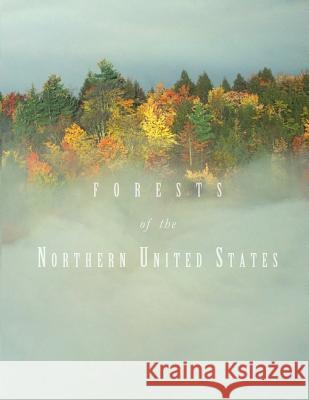Forests of the Northern United States » książka
Forests of the Northern United States
ISBN-13: 9781480146051 / Angielski / Miękka / 2012 / 216 str.
This publication, "Forests in the Northern United States," is part of the Northern Forest Futures Project, through which the Northern Research Station of the US Forest Service examines the issues, trends, threats, and opportunities facing the forests of the northern US. This report provides a broad overview of current conditions affecting forests in the 20-state region including Connecticut, Delaware, Illinois, Indiana, Iowa, Maine, Maryland, Massachusetts, Michigan, Minnesota, Missouri, New Hampshire, New Jersey, New York, Ohio, Pennsylvania, Rhode Island, Vermont, West Virginia, and Wisconsin. It draws on information from numerous sources to provide 1) an understanding of the characteristics of northern forests relative to the rest of the US, 2) a comparative framework for understanding differences among States and how they individually and collectively contribute to the region's forest resources, and 3) a context for interpreting projections of future forest conditions in the region. Bounded by Maine, Maryland, Missouri, and Minnesota, the 20 Northern States have a larger population and a higher proportion of forest cover than other comparably sized U.S. regions. Forest-associated issues across the North include insect and disease pests, invasive species, forest management capacity, management standards, biodiversity, forest fragmentation, water quality, water quantity, output of forest products, recreation, and environmental literacy-all related to sustainability at local, State, and regional scales. This report uses the Montreal Process to summarize current conditions and recent trends in seven categories-biodiversity; forest productive capacity; forest ecosystem health; soil and water resources; forest carbon and biomass; long-term socioeconomic benefits; and the legal, institutional, and economic framework for sustainable management-and adds an eighth category to reflect the importance of urban and community forests to the Northern States. Since 1953, population in the North increased by 40 percent, forest area by 28 percent, and timber volume by 140 percent. The increases in forest area appear to be leveling off as urban expansion subsumes about 1.5 million acres of forest land per decade. Seventy-four percent of forests are privately owned, yet one acre in six is in some category of protected status. Forests are aging; and although total mortality for the region has been relatively stable in recent years, emerald ash borer and other invasive species are now poised to kill billions of trees. Forests supply 48 percent of the region's water needs and employ 441,000 in its forest products sector. Participation in a wide range of nature-based recreation activities is increasing at 10 to 20 percent per decade. These and many other characteristics of northern forests summarized in this report become interrelated on the North's forest landscapes, sometimes in complex ways. The information in this report provides a basis for ongoing, detailed discussions about these large-scale interactions and how they affect the sustainability of northern forests."
Zawartość książki może nie spełniać oczekiwań – reklamacje nie obejmują treści, która mogła nie być redakcyjnie ani merytorycznie opracowana.











